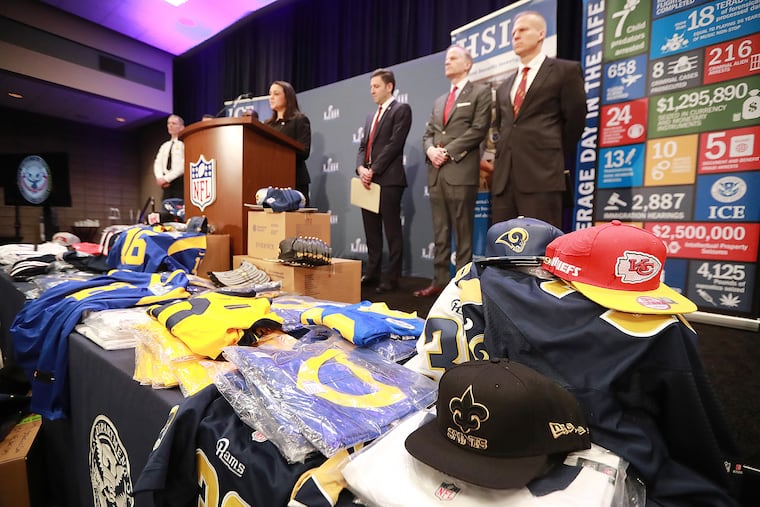Watch out for forgers selling fake tickets to Eagles games, music concerts
The Better Business Bureau warned the public about the scams, saying it received roughly 400 consumer complaints last year.

Collin Oriente usually buys tickets to the Made in America music festival months in advance, but this year he decided to go at the last minute. Needing an event wristband fast, he bought one from a mutual friend for $150, saving $50 from prices he found online.
But Oriente was turned away when he reached the gate on Labor Day weekend. The wristband was a fake, event staff said, even though it came in official-looking packaging and with a code corresponding to an actual ticket. Whoever had the real one was already inside the festival.
“I didn’t think they could make a fake ticket,” said Oriente, 20, of West Chester. “It looked completely real.”
Oriente was the victim of a scam in which phony tickets are sold to concerts, shows, and games. Scammers sometimes use sophisticated printing methods to mimic authentic ticket markings and holograms.
It doesn’t appear to be a widely used scam, according to official ticket sellers, but the schemes have drawn the attention of federal prosecutors in Pennsylvania. In January, U.S. Attorney William M. McSwain announced charges against 13 people, including seven from Philadelphia, accused of selling fake tickets to the Super Bowl, Eagles games, concerts in the city, and other events.
» READ MORE: Feds charge 7 from Philly in alleged scheme to sell fake Super Bowl tickets
The Better Business Bureau warned the public about the scams in August, saying it received roughly 400 consumer complaints last year. There were about 500 the year before.
“Thanks to the internet, there are countless ways for consumers to find tickets and connect with online marketplaces, ticket sellers, and resellers,” the bureau warned. “Unfortunately, some of them are ripoffs, and it’s not always clear how to tell if a ticket is fake.”
Fans should buy tickets directly from the venue when possible and know the difference between professional ticket brokers and unregulated scalpers, the bureau says. Consumers should also pay with a credit card so they can dispute the charges if the tickets are not as promised.
Prosecutors detailed a sophisticated scheme in court documents against one of those charged in the fraud, Eugene Smith, a Georgia resident who pleaded guilty and was sentenced to 51 months in prison in May. For two years, Smith bought real tickets, sent them to a printer to make copies, and distributed the phonies nationwide for sale. Smith and his accomplices sold counterfeit tickets to events such as the 2018 Super Bowl between the Eagles and the New England Patriots and an Army-Navy Game in Philadelphia. In total, Smith was responsible for at least $150,000 in intended losses, prosecutors said.
“This case isn’t just about taking advantage of sports fans’ willingness to spend their hard-earned dollars to enjoy a game; this is about ensuring that consumers of all types can trust that when they spend their money, they are getting the authentic product for which they paid,” McSwain said in a statement in May.
In another case, Edward Dunmore, 61, of Philadelphia, twice sold fake tickets for a Phish concert, prosecutors said. He was sentenced in August to one day in prison, 100 hours of community service, and a $200 special assessment.
Using an authentic ticket as a template, Smith and his accomplices printed fake tickets that included holograms and security features that can only be seen with a black light, prosecutors said. But all the batches didn’t turn out well. Ahead of one football game, an accomplice told Smith that the fake tickets had crooked letters and missing graphics. “Gotta redo everything," the accomplice said in a text message.
For the 2018 Super Bowl, Smith bought one ticket for $5,000 and distributed fakes with a face value of more than $54,000.
The scams left fans stuck outside stadiums after spending hundreds or thousands of dollars, prosecutors said. As one victim put it in court records: “The fact that someone would take such advantage of people made me question the future of our society and humanity."